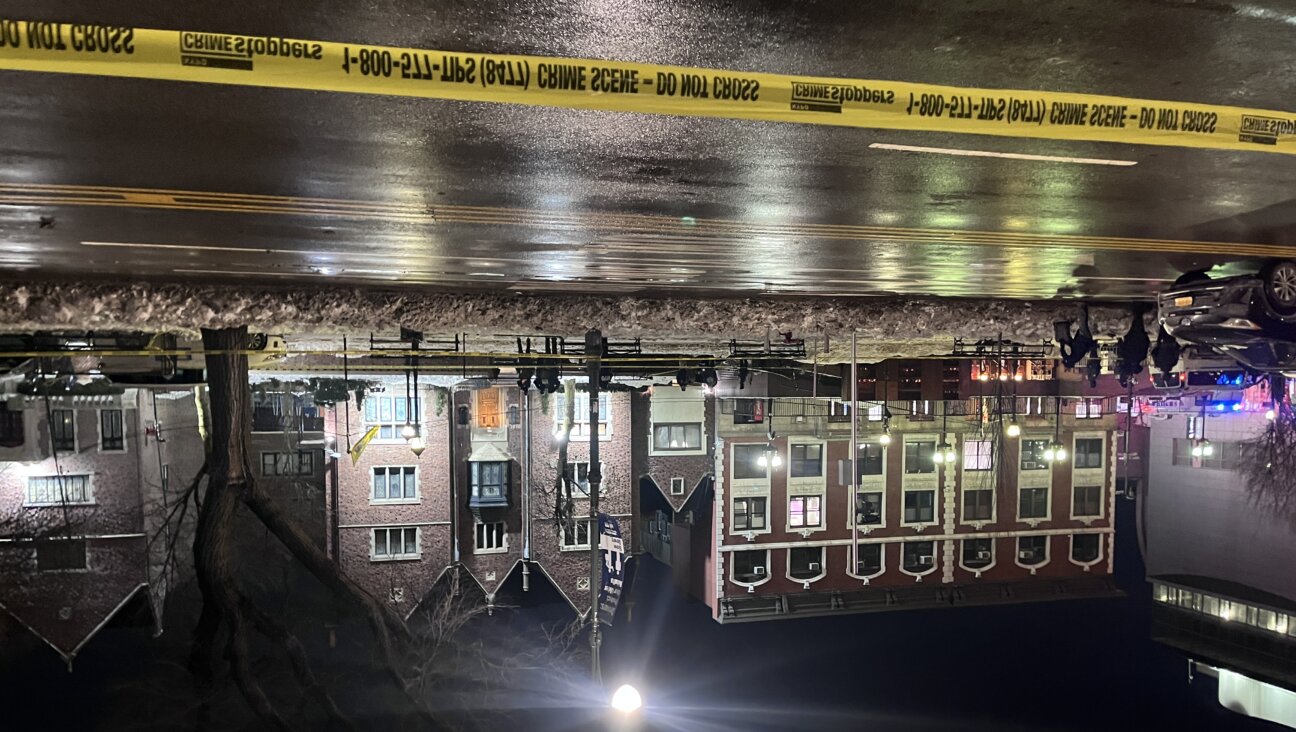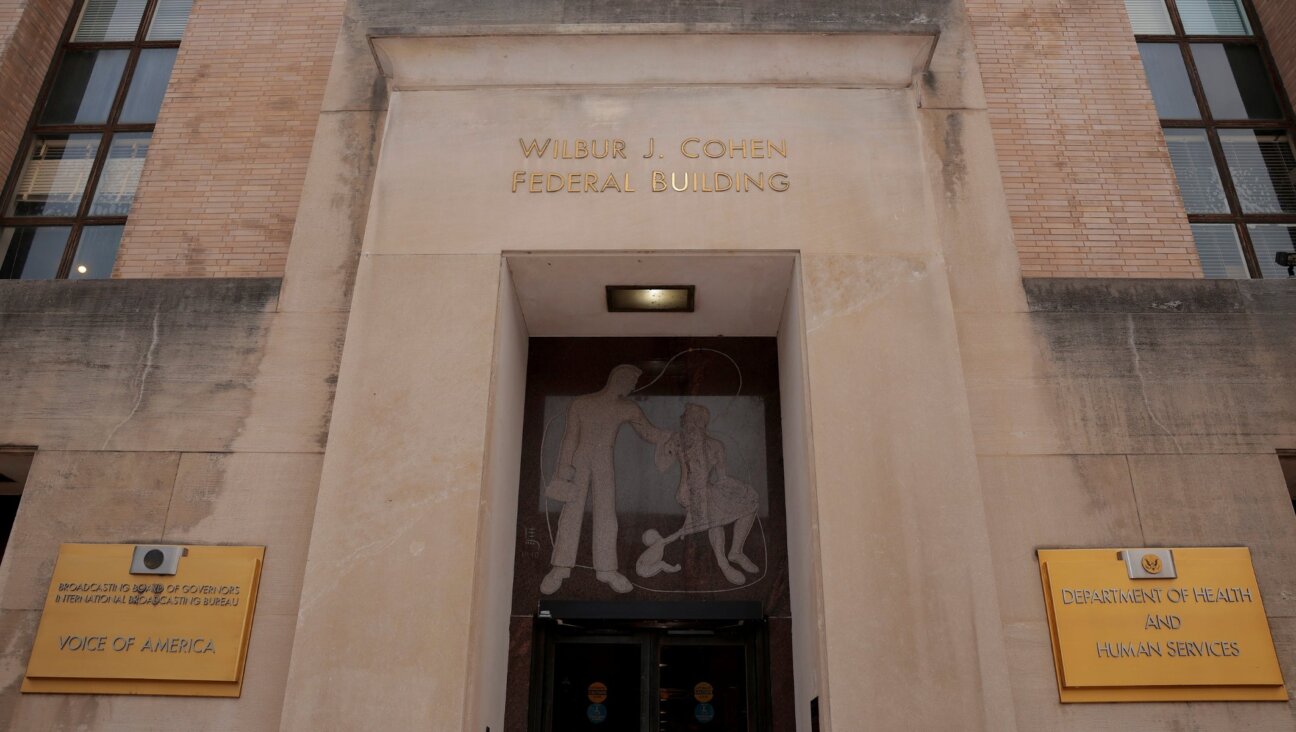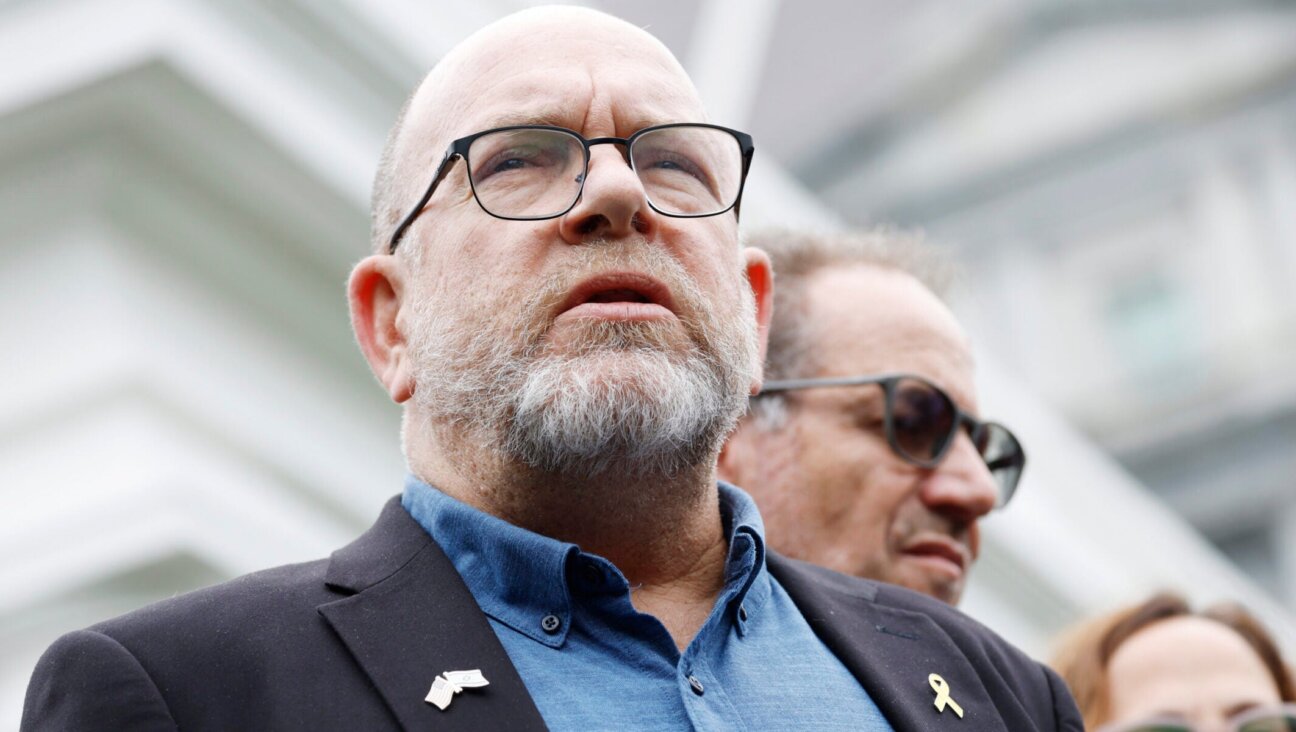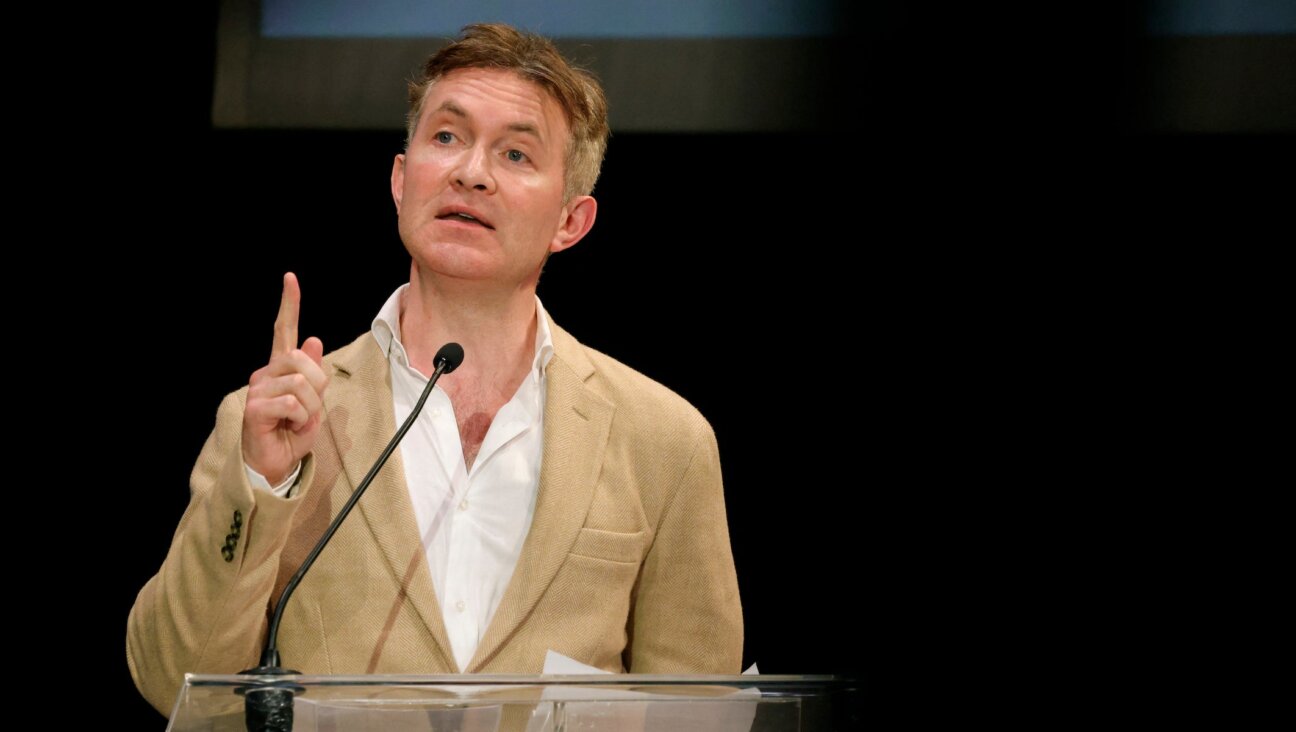New Israel Fund Alone in Funding Israel Protests

Graphic by Angelie Zaslavsky

Struggle Continues: As the protests in Israel continue, the New Israel Fund has been virtually alone in raising money to help. But leaders of the social movement want to maintain their independence. Image by Getty Images
Since mid-July, hundreds of thousands of Israelis have demonstrated for “social justice” in what have been called the nation’s largest protests on domestic issues in recent memory, and organizers promise more. Yet the leaders of most major American Jewish organizations have been noticeably silent about these protests — with one exception.
And that organization, the New Israel Fund, which so far has raised $35,000 on behalf of the demonstrators, has been shunned by some of the very protesters it is trying to support.
This dynamic illustrates the way that the protest movement that began on July 14 has scrambled the conventional relationship between Israelis and the American Jewish establishment. Eager to show that the tent cities and marches throughout the country are a grassroots effort, some Israeli organizers are reluctant to accept American funding, especially from a politically charged organization like the NIF. At the same time, it seems, some U.S. leaders are reluctant to endorse a movement that, while it says it is avowedly non-partisan, could serve to weaken the Netanyahu government.
“The Rothschild Boulevard tent camp and leaders of the protests are cautious about working with us,” acknowledged Yuval Yavneh, director of the NIF grants department. “People on the right were successful in portraying us as a left-wing group, and the organizers are afraid of any political identification that might deter supporters.”
Nonetheless, NIF mobilized as soon as the tent cities popped up in Tel Aviv and later across the country. On August 8, after 150,000 Israelis took to the streets in the first of what would become a series of mass demonstrations, a fundraising appeal was sent out by Rachel Liel, NIF’s executive director in Israel. “Stand with these Israelis. Stand for social justice and for democracy,” the e-mail urged, linking supporters to an online donation website. Since then, of some $35,000 that has been raised, NIF officials have disbursed more than $21,000 in small grants to activist groups on the ground. The grants, up to $1,000 each, were provided only to certain elements within the Israeli movement and are based on two criteria: assisting protesters from the so-called periphery, outside Tel Aviv, and helping activists from smaller groups connect to the broader national protest movement. As part of this effort, grants were provided to groups of Ethiopian immigrants, Israeli Arabs, the handicapped, foreign workers and Russian-speaking Israelis. The NIF also provided money for tents and electric generators for protesters in areas other than the main tent city on Rothschild Boulevard.
“We want our money to go where it is needed the most,” said Yavneh, adding that the Tel Aviv protesters have other funding sources, including the national student movement. NIF did not provide funds for the two mass demonstrations that took place in central Tel Aviv but did support smaller demonstrations in Haifa, Jerusalem and in front of the Knesset.
In addition, professionals from Shatil, NIF’s social activism arm, have volunteered in 40 of the 65 tent cites across Israel, helping protesters organize, connect and resolve disputes.
Because the protest movement is so decentralized, it is difficult to assess what NIF’s share represents. Still, it is emerging as one of the largest funders, alongside the national student organization and a couple of labor-oriented youth movements. Costs of the protest have been kept to a minimum, and the only big-ticket expense — the mass Tel Aviv demonstrations — was paid for from donation jars that were passed around the crowds.
NIF’s offer to help was met with a mixed response on the ground in Israel. On the one hand, the group received a stream of requests for grants from the tent encampments and social change organizations representing minority groups. But leaders of the mainstream protest movement, especially those in Tel Aviv, the movement’s epicenter, chose to steer clear of the group.
“Everyone is saying that we are supported by the New Israel Fund, but we don’t work with them directly or indirectly,” Orly Weisselberg, one of the protest organizers, said in a phone interview. “We are not willing to have any groups that are getting involved in order to promote their own agenda or to direct the movement toward their own interests. We welcome any kind of support, but our condition is that they have no conditions.”
NIF’s support for the protest movement, although limited in scope, triggered a barrage of criticism from Israel’s right wing. In blog posts and newspaper articles, opponents argued that the protest movement was no more than a front for the NIF. “We’re rather bemused by the extreme right in Israel ‘crediting’ it to the New Israel Fund,” said NIF spokeswoman Naomi Paiss, who stressed that the protest “is an authentic grassroots movement. “
Whatever NIF’s role, it stands in stark contrast to the relative silence of other Jewish groups, which are normally quick to issue a press release anytime there is news from Israel. The Anti-Defamation League, American Israel Public Affairs Committee, the Conference of Presidents of Major American Jewish Organizations, J Street — all have said nothing. The American Jewish Committee did not issue a statement, but did offer an analysis that took no position on the protests. Only the Reform movement and the left-leaning Ameinu issued statements of support.
The Jewish Federations of North America issued a carefully worded press release pledging support for “those who raise their voice in the public forum for the good of Israeli society, whether protest tent-dweller or member of Knesset.” At the same time, JFNA urged protesters and the government to continue their dialogue until reaching an agreement.
Other groups expressed their support from afar. Rabbi Steve Gutow, president and CEO of the Jewish Council for Public Affairs, an organization known for its strong stance on social issues, said the demonstrations raised real concerns regarding economic disparity in Israel. “Social justice in Israel is something we care about deeply,” Gutow said, while adding that his group still wishes to give time for the commission set up by Prime Minister Netanyahu to issue its recommendations. “The fact that the government is seen as responding gave us a sense of pause,” Gutow said.
Contact Nathan Guttman at [email protected]
















